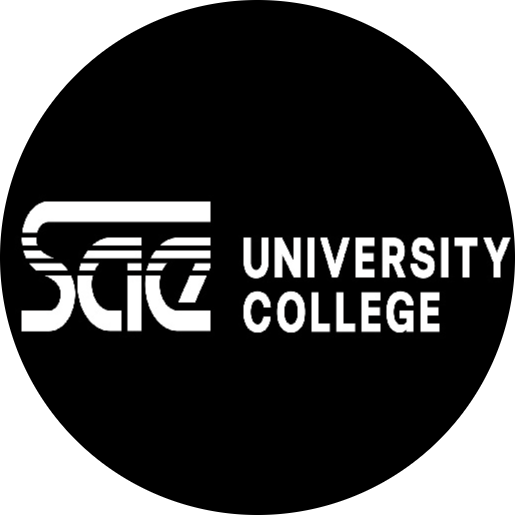
Home > Study in Australia > Engineering Institute of Technology - Brisbane Campus > Master of Engineering in Electrical Systems
Master of Engineering in Electrical Systems
 Engineering Institute of Technology - Brisbane Campus, Australia
Engineering Institute of Technology - Brisbane Campus, Australia

AUD 25850
Annual Tuition Fee

Free
Application Fee

24 months
Duration

6
IELTS

55%
Min GPA
Program Overview
The Master of Engineering (Electrical Systems), developed by electrical and renewable energy experts, will equip you with the necessary skills and knowledge to address the demands of the modern power industry. You will learn how to design the components of a power system including generation, transmission, distribution and the associated systems. The program will also cover the automation, protection and control components that contribute to the high level of reliability expected from modern power systems.
Program Learning Outcomes
Graduates of this program will be able to:
- Demonstrate sound fundamental understanding of the scientific and engineering principles and apply underpinning natural, physical and engineering sciences, mathematics, statistics, computer and information sciences to solve problems in electrical systems engineering.
- Apply in-depth as well as broad understanding of the relevant specialist body of knowledge within the electrical systems engineering discipline including: fundamental power generation and power system design principles; evaluation power system safety and protection; assessing smart grids; power stability and operational analysis; substation automation and systematic project management.
- Reflect critically on a broad body of engineering knowledge to plan and execute an electrical systems engineering research based project, with awareness to knowledge development and research direction within the engineering discipline.
- Draw on the knowledge of engineering design practice and understand the scope, principles, norms, accountabilities and bounds of sustainable engineering practice in the electrical systems engineering discipline.
- Apply systematic approaches, design processes and established engineering methods, tools, techniques and resources, underpinned by hazard and risk framework considerations to conduct and manage electrical systems engineering projects.
- Communicate effectively technical ideas, design concepts or research results to a diverse audience.
- Ability to recognise and pro-actively engage in ongoing professional development and lifelong learning, as well as develop creative and innovative solutions to engineering problems.
- Demonstrate professional use and management of information.
- Apply discipline and professional knowledge and skills to demonstrate autonomy, adaptability and responsibility as a professional engineer.
- Ability to work as a member of a cross disciplinary team in a manner consistent with ethical and professional standards.
Additional Information
Program Level Master's Degree
College/University Processing Time 5 Days
Program Format Full-Time
Post-Study Work Rights (PSWR) 
General Admission Requirement
Academic Requirement
Minimum Level of Education Required: To gain entry into this program, we require applicants to hold:
- A recognized 3-year bachelor degree* in an engineering qualification in a congruent** field of practice; OR
- An EIT Bachelor of Science (Engineering) degree* in a congruent** field of practice; OR
- A 4-year Bachelor of Engineering qualification (or equivalent) that is recognized under the Washington Accord or by Engineers Australia, in a congruent**, or a different field of practice at the discretion of the Admissions Committee; OR
- A 4-year Bachelor of Engineering qualification (or equivalent)* that is not recognized under the Washington Accord, in a congruent** field of practice to this program
* With integrated compulsory twelve-week professional industry experience, training or project work of which six weeks are directly supervised by a professional/eligible professional engineer as determined by EIT.
** Congruent field of practice means one of the following with adequate Electrical Engineering content (fields not listed below to be considered by the Dean and the Admissions Committee on a case-by-case basis):
- Electrical engineering
- Power engineering
- Electronic and communication systems
- Industrial automation
- Instrumentation and control
- Mechatronic systems
- Renewable systems
- Energy management systems
- Signal processing
Similar Programs


Griffith University - Gold Coast Campus
Intake Jul 2025
Mar 2025

Application Fee

Duration
Test Score
6.5
IELTS
79
TOEFL
60
Min GPA


Griffith University - Gold Coast Campus
Intake Jul 2025, Nov 2025
Mar 2025

Application Fee

Duration
Test Score
6.5
IELTS
79
TOEFL
60
Min GPA


Griffith University - Gold Coast Campus
Intake Jul 2025
Mar 2025

Application Fee

Duration
Test Score
6.5
IELTS
79
TOEFL
50
Min GPA


Griffith University - Gold Coast Campus
Intake Jul 2025
Mar 2025

Application Fee

Duration
Test Score
6.5
IELTS
79
TOEFL
65
Min GPA


Griffith University - Gold Coast Campus
Intake
Mar 2025

Application Fee

Duration
Test Score
7
IELTS
94
TOEFL
65
Min GPA


Griffith University - Gold Coast Campus
Intake Jul 2025
Mar 2025

Application Fee

Duration
Test Score
6.5
IELTS
79
TOEFL
50
Min GPA


Griffith University - Gold Coast Campus
Intake Jul 2025
Mar 2025

Application Fee

Duration
Test Score
6.5
IELTS
79
TOEFL
50
Min GPA


Griffith University - Gold Coast Campus
Intake Jul 2025, Nov 2025
Mar 2025

Application Fee

Duration
Test Score
6.5
IELTS
79
TOEFL
50
Min GPA


Griffith University - Gold Coast Campus
Intake Jul 2025, Nov 2025
Mar 2025

Application Fee

Duration
Test Score
6.5
IELTS
79
TOEFL
50
Min GPA


Griffith University - Gold Coast Campus
Intake Jul 2025
Mar 2025

Application Fee

Duration
Test Score
6.5
IELTS
79
TOEFL
50
Min GPA


Griffith University - Gold Coast Campus
Intake Jul 2025, Nov 2025
Mar 2025

Application Fee

Duration
Test Score
6.5
IELTS
79
TOEFL
50
Min GPA


Griffith University - Gold Coast Campus
Intake Jul 2025
Mar 2025

Application Fee

Duration
Test Score
6.5
IELTS
79
TOEFL
50
Min GPA


Griffith University - Gold Coast Campus
Intake Jul 2025
Mar 2025

Application Fee

Duration
Test Score
6.5
IELTS
79
TOEFL
50
Min GPA


Griffith University - Gold Coast Campus
Intake Jul 2025, Nov 2025
Mar 2025

Application Fee

Duration
Test Score
6.5
IELTS
79
TOEFL
50
Min GPA


Griffith University - Gold Coast Campus
Intake Jul 2025
Mar 2025

Application Fee

Duration
Test Score
6.5
IELTS
79
TOEFL
50
Min GPA


Griffith University - Gold Coast Campus
Intake Jul 2025
Mar 2025

Application Fee

Duration
Test Score
7
IELTS
92
TOEFL
63
Min GPA


Griffith University - Gold Coast Campus
Intake
Mar 2025

Application Fee

Duration
Test Score
7.5
IELTS
0
TOEFL
50
Min GPA


Griffith University - Gold Coast Campus
Intake Jul 2025
Mar 2025

Application Fee

Duration
Test Score
6.5
IELTS
79
TOEFL
65
Min GPA


Griffith University - Gold Coast Campus
Intake Jul 2025, Nov 2025
Mar 2025

Application Fee

Duration
Test Score
6.5
IELTS
79
TOEFL
50
Min GPA


Griffith University - Gold Coast Campus
Intake
Mar 2025

Application Fee

Duration
Test Score
7.5
IELTS
0
TOEFL
50
Min GPA
Tuition Fee
The values given below are estimated figures, excluding extra charges like material fee, student activity fees, athletic fees, health care, etc., for courses. To know more, please visit the Programs page.
Average Tuition Fee Per Year
25850
Tuition Fee
(AUD)
Free
Application Fee
(AUD)
29710 Per year
Average Cost of Living
(AUD)
The living costs include the total expenses per month, covering accommodation, public transportation, utilities (electricity, internet), books and groceries.
Check program website for more information about funding options.
Scholarships
Scholarships and Bursaries
Year 1 Industrial Automation Bursary
Year 1 Industrial Automation Bursary aims to promote industrial automation study
- Value: 20% reduction on your tuition fees (first year only)
- Number offered: unlimited
- Applicable To: on-campus Bachelor of Science (Industrial Automation Engineering) and on-campus Master of Engineering (Industrial Automation) students – 2024 intakes
Eligibility Criteria
- Be a new student commencing a Bachelor of Science (Industrial Automation Engineering) or Master of Engineering (Industrial Automation) in either Feb/July 2024, for on campus (Perth or Melbourne) study;
- Be enrolling into an EIT Higher Education (HE) program for the first time;
- Must meet or exceed the English Language Proficiency requirement for the specific course of study
Bursary Conditions
- The bursary is open to prospective students and offer holders of the above-mentioned courses.
- It is not open to currently enrolled EIT students.
- The bursary amount cannot be refunded or transferred.
- The bursary only covers tuition fees and does not cover any other non-tuition fees or expenses.
- The bursary will be forfeited if the student defers their course or withdraws from the course, unless otherwise approved by EIT.
- If a student is involved in any academic misconduct, owes a debt to EIT (i.e. does not pay fees on time), fails a unit or becomes a student at risk at any time during their course then the bursary will be forfeited.
- EIT takes academic integrity very seriously and breaches (e.g.: plagiarism, contract cheating, cheating, etc.) are considered academic misconduct.
EIT Women in Engineering Scholarship
- Value: 25% discount on tuition fees for the next term/semester combined with mentorship with one of EIT’s female engineers. Please note that discounts will be applied to the tuition fees for up to a maximum of 5 units in one semester/term. Discounts are applied to the amount and currency invoiced to the student.
- Number offered: Each Semester: Online Bachelor’s – 1. On-campus Bachelor’s – 1. On-campus Master’s – 1. Online Master’s: Term 2 & 4 – 1 each term.
- Opening Date: 6 weeks before the start of the next semester/term
- Closing Date: 3 weeks before the start of the next semester/term
- Applicable to: Current Bachelor and Master female-identifying students
Eligibility Criteria
- Must be female-identifying currently studying one of EIT’s Bachelor or Master degree programs
- Must have been enrolled in at least one semester or term of your current course of study prior to submitting your application
- Must have achieved an overall average course mark to date of at least 75%
- Must not have any outstanding tuition fees owing to EIT
- Must submit an application form (found below)
- Must be full fee-paying, without existing scholarships
Selection Criteria
- Completed application form
- Academic record
- Financial standing
- Awarded to the highest academic performance of the scholarship applicants for each course type (undergraduate and postgraduate) in each mode of delivery (online and on-campus)
- As Women in Engineering scholarships are awarded based on your academic results, the actual scholarship selection made by the EIT Scholarship panel is not confirmed until you have completed the previous teaching period and all results have been released. Please do not let this stop you from applying; you do not have to wait until the release of your academic results as we can apply scholarships retrospectively and refund any difference in tuition fees due if you are successful.
EIT Equity – Diversity Access Bursary (Higher Education)
The EIT Equity – Diversity Access Bursary (Higher Education) strives for and embraces diversity and inclusion among our students. This bursary selection will be determined on a relative need basis.
- Value: 10% reduction on your tuition fees (first year only)
- Number offered: On-campus – 6 per intake. Online. This scholarship is exhausted for online applicants for Semester 2 2024.
- Closing date: Cut-off date for bursary applications is 1 month prior to the start date of the course
- Applicable To: Future Higher Education students
Eligibility Criteria
- Must be starting one of EIT’s Higher Education courses
- Must meet or exceed the English Language Proficiency requirement for the specific course of study
- Must meet all other entry requirements for the course
Selection Process
Selection is determined on a relative need basis, prioritizing applicants who are able to demonstrate one or more educational disadvantages via the EIT Equity – Diversity Access Bursary application. The criteria include the following educational disadvantages:
- Regional or remote background
- Sole parent responsibilities
- Carer responsibilities
- Long-term medical condition / disability or ongoing effect of abuse
- Indigenous Australian
- Refugee status
- Financial hardship
Bursary Conditions
- The bursary value is equal to a 10% reduction on the total first year course tuition fees.
- The bursary is applicable to only the specific course as indicated in the letter of offer.
- The bursary discount will be divided evenly across the total amount of units in the course and applied each study period to each unit being undertaken, not in a lump sum.
- The bursary only covers tuition fees and does not cover any other non-tuition fees or expenses.
- Students must successfully pass all units attempted each semester/term otherwise the bursary will be revoked by EIT.
- The bursary will be forfeited if the student defers their course or withdraws from the course, unless otherwise approved by EIT.
- If a student is involved in any academic misconduct, owes a debt to EIT (i.e. does not pay fees on time) or becomes a student at risk at any time during their course then the bursary will be forfeited.
- EIT takes academic integrity very seriously and breaches (e.g.: plagiarism, contract cheating, cheating, etc.) are considered academic misconduct.
- The bursary will not be extended beyond the prescribed course duration or tuition fee amount unless notified otherwise by EIT.
- Bursary may be applied only toward tuition fees and are subject to review in the case of enrolment changes, extension of the course of study beyond the normal program length, or external tuition bursary support which, when combined with the EIT’sbursary, exceeds the cost of tuition.
- The 10% reduction will only apply to units to be studied by the student. If a student receives Recognition of Prior Learning (RPL), the course tuition fee amount will be reduced accordingly and the 10% bursary will only apply to the reduced course tuition fee amount.
- The bursary is not redeemable for cash and is not transferable to any other costs. Once the bursary is terminated, it cannot be reinstated.
- The offer of the bursary is made subject to all information provided by the student being true and accurate.
- By accepting the offer of the Bursary, each student agrees to the bursary conditions.
- Students must comply with all of the EIT’s policies and procedures including those relating to conduct.
- Student must consent to allowing their name, photograph and/or short article to be used for the promotion of EIT.
- Must be full fee-paying, without existing bursary. Students can apply for multiple bursary, but will only be awarded one bursary.
Relocation Grant
The Relocation Grant offers the opportunity of a scholarship to future students relocating in the aim to study in one of EIT’s campuses.
- Value: Up to the value of AUD $2,000
- Number offered: 5 per intake
- Applicable To: Future Bachelor, Master or Doctorate international students
Eligibility Criteria
- Must be an international student starting one of EIT’s on-campus programs
- Must be full fee-paying, without existing scholarships
- Must provide one paragraph (included in Application Form) explaining why you should be awarded this grant
- Must meet EIT’s entry requirements for the respective program
Scholarship Conditions
- Up to the value of AUD $2,000 to cover the cost of an economy class airfare on a one way ticket from the student’s current location (onshore or offshore) to the EIT campus location. EIT will organise the airfare on your behalf and will include a minimum baggage allowance of 20kg.
- If the student requires extra baggage, then this will need to be booked and paid for by the student.
- If the student is required to quarantine, then this will need to be organised and paid for by the student.
- This grant can be revoked if the recipient defers their enrolment, is withdrawn by EIT, or the student does not receive a student visa.
The Richard E. Morley Industrial Automation Scholarship
The Richard E. Morley Industrial Automation Scholarship honors Richard E. Morley, a brilliant Mechanical Engineer, with a scholarship fund to students pursuing a Bachelor of Science or Master Of Engineering.
- Value: 20% reduction on your tuition fees (first year only)
- Number offered: On-campus – 5 per intake. Online – 5 per intake.
- Applicable To: Future Bachelor of Science (Industrial Automation Engineering) and Master of Engineering (Industrial Automation) students
Eligibility Criteria
- Must be starting a Bachelor of Science (Industrial Automation Engineering) or Master of Engineering (Industrial Automation) with EIT
- Must meet or exceed the English Language Proficiency requirement for the specific course of study
- Must meet all other entry requirements for the course and at least a minimum result of 70% in all Mathematics units achieved in the highest level of education completed
Scholarship Conditions
- The Richard E. Morley Industrial Automation Scholarship value is equal to a 20% reduction on the first year of course tuition.
- The scholarship discount will be divided evenly across the total amount of units in the course and applied each semester to each unit being undertaken, not in a lump sum.
- The scholarship only covers tuition fees and does not cover any other non-tuition fees or expenses.
- Students must successfully pass all units attempted each semester/term otherwise the scholarship will be revoked by EIT.
- The scholarship will be forfeited if the student defers their course or withdraws from the course, unless otherwise approved by EIT.
- If a student is involved in any academic misconduct, owes a debt to EIT (i.e. does not pay fees on time) or becomes a student at risk at any time during their course then the scholarship will be forfeited.
- The scholarship will not be extended beyond the prescribed first year course duration or tuition fee amount unless notified otherwise by EIT.
- Scholarships may be applied only toward tuition fees and are subject to review in the case of enrolment changes, extension of the course of study beyond the normal program length, or external tuition scholarship support which, when combined with the EIT’s scholarship, exceeds the cost of tuition.
- The 20% reduction will only apply to units to be studied by the student. If a student receives Recognition of Prior Learning (RPL), the course tuition fee amount will be reduced accordingly and the 20% scholarship will only apply to the reduced course tuition fee amount.
- Must be full fee-paying, without existing scholarships. Students can apply for multiple scholarships, but will only be awarded one scholarship.
The EIT Dean’s Scholarship
The EIT Dean’s Scholarship is offered as a recognition of high achievement to students who have achieved outstanding results.
- Value: 15% reduction on your first year course tuition fees
- Number offered:
- On-campus – 10 per intake
- Online – 10 per intake. This scholarship is exhausted for online applicants for Semester 2/Term 3 2024.
- Applicable To: Future Bachelor , Master and Doctorate students
Eligibility Criteria
- Must be starting one of EIT’s higher education courses
- Must meet or exceed the English Language Proficiency requirement for the specific course of study
- Must meet all other entry requirements for the course, plus at least an overall average of 65% (or equivalent result) in a congruent Bachelor Degree [for entry to EIT Master Degrees.
- Must meet all other entry requirements for the course, plus at least an overall average of 65% in grade 12 (or highest level award in equivalent pathway), +plus 65% result in all Maths units [for entry to EIT Bachelor Degrees]
- No more than 5 backlogs
Scholarship Conditions
- The scholarship value is equal to a 15% reduction on the first year total course tuition.
- The scholarship discount will be divided evenly across the total amount of units in the course and applied each semester to each unit being undertaken, not in a lump sum.
- The scholarship only covers tuition fees and does not cover any other non-tuition fees or expenses.
- Students must successfully pass all units attempted each semester/term otherwise the scholarship will be revoked by EIT.
- The scholarship will be forfeited if the student defers their course or withdraws from the course, unless otherwise approved by EIT.
- If a student is involved in any academic misconduct, owes a debt to EIT (i.e. does not pay fees on time) or becomes a student at risk at any time during their course then the scholarship will be forfeited.
- The scholarship will not be extended beyond the prescribed course duration or tuition fee amount unless notified otherwise by EIT.
- Scholarships may be applied only toward tuition fees and are subject to review in the case of enrolment changes, extension of the course of study beyond the normal program length, or external tuition scholarship support which, when combined with the EIT’s scholarship, exceeds the cost of tuition.
- The 10% reduction will only apply to units to be studied by the student. If a student receives Recognition of Prior Learning (RPL), the course tuition fee amount will be reduced accordingly and the 10% scholarship will only apply to the reduced course tuition fee amount.
- Must be full fee-paying, without existing scholarships. Students can apply for multiple scholarships, but will only be awarded one scholarship
EIT International Science and Engineering Merit (ISEM) Scholarship
- Value: 35% reduction* on your tuition fees for the next term/semester. * Discounts will be applied to the tuition fees for up to a maximum of 5 units in one semester/term. Discounts are applied to the amount and currency invoiced to the student.
- Number offered: Each Semester: 1 x online bachelor’s; 1 x on-campus bachelor’s; 1 x on-campus master’s. Term 2 & 4: (online master’s students): 1 each term
- Applicable to: Current Bachelor and Master students
- Opening Date: 6 weeks before the start of the next semester/term
- Closing Date: 3 weeks before the start of the next semester/term
Eligibility Criteria
- Must be currently studying one of EIT’s Bachelor or Master degree programs
- Must have been enrolled in at least one semester or term of your current course of study prior to submitting your application
- Must have achieved an overall average course mark to date of at least 75%
- Must be full fee-paying, without existing scholarships
- Must not have any outstanding tuition fees owing to EIT
- Must submit an application form (found below).
Selection Criteria
- Completed Scholarship Application Form.
- Academic record.
- Financial standing.
- The EIT International Science and Engineering Merit (ISEM) Scholarship is awarded to the highest academic performance of the scholarship applicants for each course type (undergraduate and postgraduate) in each mode of delivery (online and on-campus).
- Must be full fee-paying, without existing scholarships. Students can apply for multiple scholarships, but will only be awarded one scholarship
- As ISEM scholarships are awarded based on your academic results, the actual scholarship selection made by the EIT Scholarship panel is not confirmed until you have completed the previous teaching period and all results have been released. Please do not let this stop you from applying; you do not have to wait until the release of your academic results as we can apply scholarships retrospectively and refund any difference in tuition fees due if you are successful.
EIT Academic Excellence Scholarship
EIT awards the Academic Excellence Scholarship to currently enrolled students on the basis of academic performance as measured by cumulative GPA (or Weighted Average Mark where two or more applicants have the same cumulative GPA). These scholarships are highly competitive and highly regarded as they reflect the academic best at EIT. Scholarship recipients will have the opportunity to represent EIT at academic, community and promotional events.
- Value: This scholarship awards a 10% discount on tuition fees for the next semester* to the highest academic performance in each course type (undergraduate and postgraduate) in each mode of delivery (online and on-campus) as measured by cumulative GPA (or Weighted Average Mark where two or more applicants have the same cumulative GPA). *Discounts will be applied to the tuition fees for up to a maximum of 5 units in one semester/term. Discounts are applied to the amount and currency invoiced to the student.
- Numbered offered: There are up to 3 scholarships available in Semester 1 & 2 (one each for on-campus and online undergraduate courses and one for on-campus postgraduate courses), and 1 scholarship available in Term 1 & 3 for online postgraduate courses.
- Applicable to: Current Bachelor and Master students
- Delivery Locations: Online, Perth, Melbourne
- Opening Date: 6 weeks before the start of the next semester/term
- Closing Date: 3 weeks before the start of the next semester/term
Eligibility Criteria
- You must have been enrolled in at least one semester or term of your current course of study prior to submitting your application
- You must have a cumulative GPA of 3.5 or higher
- You must not have previously failed any units in your current course of study
- You must have met your attendance requirements in the semester/term immediately preceding your application
- You must not have any outstanding tuition fees owing to EIT
- You must submit an application form (found below)
- You must be currently studying one of EIT’s undergraduate or postgraduate degrees
Conditions
- As Academic Excellence Scholarships are awarded based on your academic results, the actual scholarship selection made by the EIT Scholarship panel is not confirmed until you have completed the previous teaching period and all results have been released. Please do not let this stop you from applying; you do not have to wait until the release of your academic results as we can apply scholarships retrospectively and refund any difference in tuition fees due if you are successful
- A completed and submitted application form
- Academic record
- Financial standing
- Must be full fee-paying, without existing scholarships. Students can apply for multiple scholarships, but will only be awarded one scholarship
Not sure what you are looking for?
Don’t worry, we are here to help.
Popular Universities to Study Abroad
World class education waiting for you.

Queensland, Australia • 170 Programmes
Tuition Fee : AUD 31000 - 38000 / year

Queensland, Australia • 1 Programmes

Queensland, Australia • 6 Programmes
Tuition Fee : AUD 19500 - 20000 / year

Queensland, Australia • 24 Programmes
Tuition Fee : AUD 27500 - 33000 / year

Queensland, Australia • 5 Programmes
Tuition Fee : AUD 16000 - 18500 / year
Top Places To Study In Canada
Province wise Popular university and colleges for Studying abroad.
Popular English Language Proficiency Exams
Blogs and Articles
Study in Australia Blogs & Articles
Masters in Project Management in Australia
Updated on • Feb 25,2025 04:02 PM IST • Australia
Public Relations (PR) Courses in Australia
Updated on • Feb 07,2025 11:03 AM IST • Australia
Post Study Work Permit in Australia
Updated on • Nov 18,2024 01:57 PM IST • Australia
Australia Study Visa - Requirements, Process, Fee, How to Apply & More
Updated on • Oct 08,2024 11:22 AM IST • Australia
Top 10 Benefits of Studying in Australia for Indian Students
Updated on • Jul 15,2024 05:41 PM IST • Australia
Australian Student Visa Interview Questions and Answers
Updated on • Jul 11,2024 03:26 PM IST • Australia
Updated on • Jun 12,2024 01:58 PM IST • Australia
Benefits of Studying in Regional Australia
Updated on • May 15,2024 04:28 PM IST • Australia
Study and Work in Australia: A Comprehensive Guide
Updated on • Apr 05,2024 12:59 PM IST • Australia
Universities in Perth (Australia) for International Students
Updated on • Feb 28,2024 01:04 PM IST • Australia
Master's Universities in Australia
Updated on • Feb 17,2024 03:17 PM IST • Australia
Job Opportunities After MS in Australia for Indian Students
Updated on • Feb 05,2024 04:53 PM IST • Australia
Popular Courses to Study in Australia
Updated on • Feb 02,2024 05:18 PM IST • Australia
MBA in Australia - Top Universities, Courses, Cost, Eligibility for Indian Students
Updated on • Jan 30,2024 09:56 AM IST • Australia
Cost of Living in Australia for International Students
Updated on • Jan 29,2024 11:27 AM IST • Australia
PTE Accepted Universities in Australia
Updated on • Jan 10,2025 11:07 AM IST • PTE
A Guide to Post Secondary Australian Education System for International Students
Updated on • Dec 16,2023 03:47 PM IST • Australia
Updated on • Oct 21,2023 11:49 AM IST • Australia
Masters of International Business in Australia: Universities, Admission Process, Scholarships, Jobs
Updated on • Nov 06,2023 11:57 AM IST • Australia
MBA Finance in Australia: Universities, Eligibility, Scholarships and Job Opportunities
Updated on • Oct 20,2023 01:52 PM IST • Australia









